Joining us for the continuation of our Alfred Hitchcock Blogathon today is the massively talented and highly entertaining Melissa of Snap Crackle Watch! You should head over to her site if you don’t already follow her. She has freaking fantastic gifs in her articles (if ever you need a laugh), great movie reviews, and in depth series episode reviews, all well worth the read. I will stop rambling now and move over for Melissa’s review!
The Wrong Man
Directed by Alfred Hitchcock
Written by Maxwell Anderson & Angus MacPhail
To study and investigate Alfred Hitchcock’s movies, one has to imagine throwing a bunch of puzzle pieces on the table and pulling different pieces to create and shape a movie that is unmistakably a Hitchcock film. The usual elements are a story with some form of suspense weaved throughout the film, characters that are shown to be deeply and psychologically profound, a voyeuristic feel, a “MacGuffin” of some sort, the plot of murder or deceit, and actresses that were icy blonde and beautiful. Some of his most notable films that feature these elements are North by Northwest, Psycho, Vertigo and The Birds. In his most famous films, all of the puzzle pieces come together to create a beautiful piece of cinema. In Hitchcock’s 1956 film, The Wrong Man, he took some of his elements, but pared them down and gave the audience a much more subdued version of his usual type of film.
In the mid-fifties, he was in the thick of Alfred Hitchcock Presents and this movie feels like just a longer version of one of those episodes. At the time he owed Warner Bros studios one more film and this is the one he chose to make. It is notable to understand that after this film, he created one of his best films ever, Vertigo for Paramount Pictures, so perhaps he was saving something much better for his move to a new studio.
In the beginning of the movie, Hitchcock tells the audience what they are about to see is a factual story; he says “every word is true.” This beginning monologue is the only time we see him in the movie; he usually made an infamous appearance in his films, always in the background of some sort, as a train passenger, a person waiting for a bus or someone walking around a store. The fact that he chose not to make this move, only serves to reiterate the fact this film felt like a story out of Alfred Hitchcock Presents.
The story is about Manny Balestrero (Henry Fonda), a musician who plays jazz in New York’s Stork Club and who works diligently to make ends meet. His wife Rose (Vera Miles) at the same time is sick at home and needs to have her wisdom teeth pulled, but they do not have enough money to pay for the procedure. He has already taken money out of life insurance policy to pay bills and they must now resort to taking money out of wife’s policy. When he goes to the bank to do the transaction, the tellers get really nervous and freak out and alert the police. They believe and are certain that he is the man who had recently held up their bank.
When the police apprehend him, they also are under the suspicion that he not only held up banks, but had help up a deli as well. They put him through a string of reenactments; they make him walk in and out of the deli in question and subject him to handwriting analyses. Without a doubt everyone believes it was him who did it. During this tumultuous time, his wife has a mental breakdown as she believes she is the cause for all this that is happening to him.
To be succinct, Manny hires an attorney who helps him investigate and prove his innocence. When the robberies had occurred, he was actually out of town and he and his wife search for witnesses, but keep coming up short. It feels like the world is against them and with every wrong turn, Rose collapses deeper into despair. He is forced to put her in a mental hospital, so that she can get better. Eventually the real perpetrator is apprehended and it is obvious to everyone that he looks just like him and Manny is cleared of his charges.
Despite being cleared, the person left the most hurt and psychologically damaged is Rose. She is really the poignant part of the story and her collapse truly lends to the Hitchcock element of the film.
The shots of her in her deepest moments of despair, she appears almost catatonic, are close-ups in a room, with a single shot of light coming through the window and a mirror appropriately placed near her. This reminded me of the scene in Vertigo where Judy (Kim Novak) realizes that Scottie (James Stewart) is just trying to dress her up and make her look like his long lost love. The whole scene is just as creepy as that one and they both encapsulate the feeling of catatonia that is very much distinctly Hitchcock.
The movie ends on a somber note, Rose is still in the sanitarium, but then quickly as the film is about to end, we see the family walking off happily and we are presented with the fact that Rose later got out of the hospital and they lived happily ever after. I thought the presentation of that was pointless and it felt strange, after everything that happened to just throw a “happily ever after sticker” on it, seemed rushed and emotionless.
The film utilizes many POV shots to get the point across and to help the audience feel the anxiety and nervousness that many of the characters are constantly feeling. For example, when the teller looks at Manny and thinks he is the robber, the camera goes back and forth from her face to Manny’s perplexed feeling as to why he is being looked out so oddly.
The music also plays a big role in the film, many times it feels ominous and scary like when Manny is in jail and is confused as to why he is being singled out. Also, Manny’s jazz music is dispersed into the film and this adds to the heightened, frenzied emotions in the film.
Fonda and Miles did a great job with their roles and really seemed to have searched deep to portray such psychologically tormented people. I am surprised that Fonda never appeared in any more of his movies, considering what a tremendous job he did. Miles was slated to become a big start after this; she did go on to star in Psycho years later, but her run as the next Grace Kelly was over before it started. I could go on and on about this and give you guys even more info, but then this will get extremely long.
Overall, this was not one of my favorite Hitchcock films. I felt that the story was rushed and almost a copied version of the many thriller movies that evaded that time. Regardless, it is a Hitchcock film and if you haven’t seen this one already, it is worth giving it a watch and putting it under your belt. Personally, if you are new to Hitchcock I would not start off with this film. I would start off with Strangers on A Train (my fave), Notorious, Shadow of a Doubt or Rope as your introductory films into the Hitchcock repertoire. Happy Hitchcockian watching!

}}Melissa
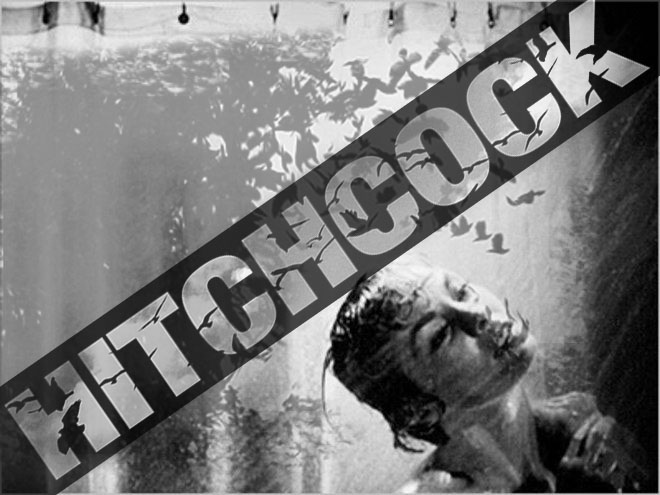



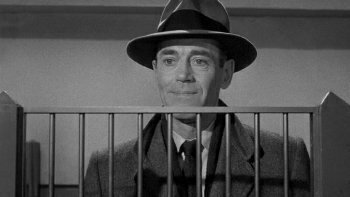

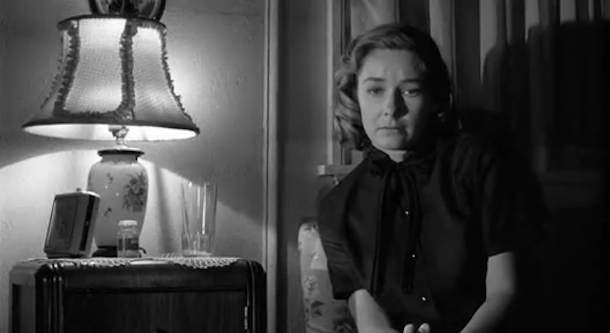

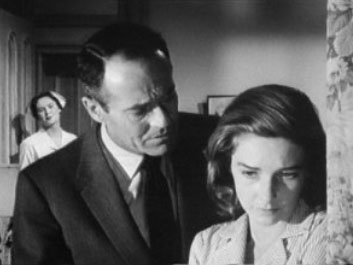
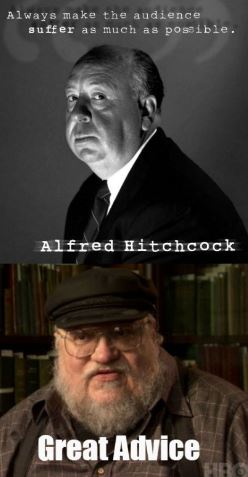
Reblogged this on and commented:
Here’s Melissa’s thoughts on The Wrong Man for our Alfred Hitchcock blogathon. Check it out! Tnx Melissa!
LikeLike
Melissa –
Nice work! I like ole Henry Fonda – I might give this one a go 🙂
LikeLiked by 1 person
Thanks Eric! It’s not a long movie, it’s definitely a quick, doable watch. Check it out!
LikeLiked by 2 people
My loveliest JBSB,
Just think – now you can coast to the end!!!
Love,
TGMJS
LikeLiked by 1 person
My Kind TGMJS,
Soon… so soon! Been successful, which is great, and loved the participation we got from everyone, that was also cool.
Love,
Almost Free Bird JB
LikeLiked by 1 person
Thanks guys!! Thank you Zoe and Rob for letting me participate!
LikeLiked by 1 person
Great review, Melissa! This is one I’ve actually not seen. Sounds like it’s not one of the very best but certainly not the worst. I LOVED Alfred Hitchcock Presents so maybe this one will be fine by me… : )
LikeLiked by 1 person
Yes you know we are in agreement about the TV show, this totally seemed like it was just a longer episode. You got it right, not great, not bad. Worth a watch if you have time. 🙂
LikeLike
🙂 Thank you, LOVE the post!
LikeLike
It’s not the first film of his I’d choose either. A good film, but I wouldn’t have known it was his. Neat review 🙂
LikeLiked by 1 person
What a fantastic review! I learned so much! Love this blogathon
LikeLiked by 1 person
HA. Melissa, those last two pics kill me. You are truly the queen of funny pics/gifs. Nice review, lady! Have not seen The Wrong Man. Sounds like I should get to some other ones first, huh? So far I’ve only seen Psycho, North by Northwest, and Vertigo. Obviously, I have some watching to do…But I think Rear Window and The Birds are at the top of that list right now. 🙂
LikeLiked by 1 person